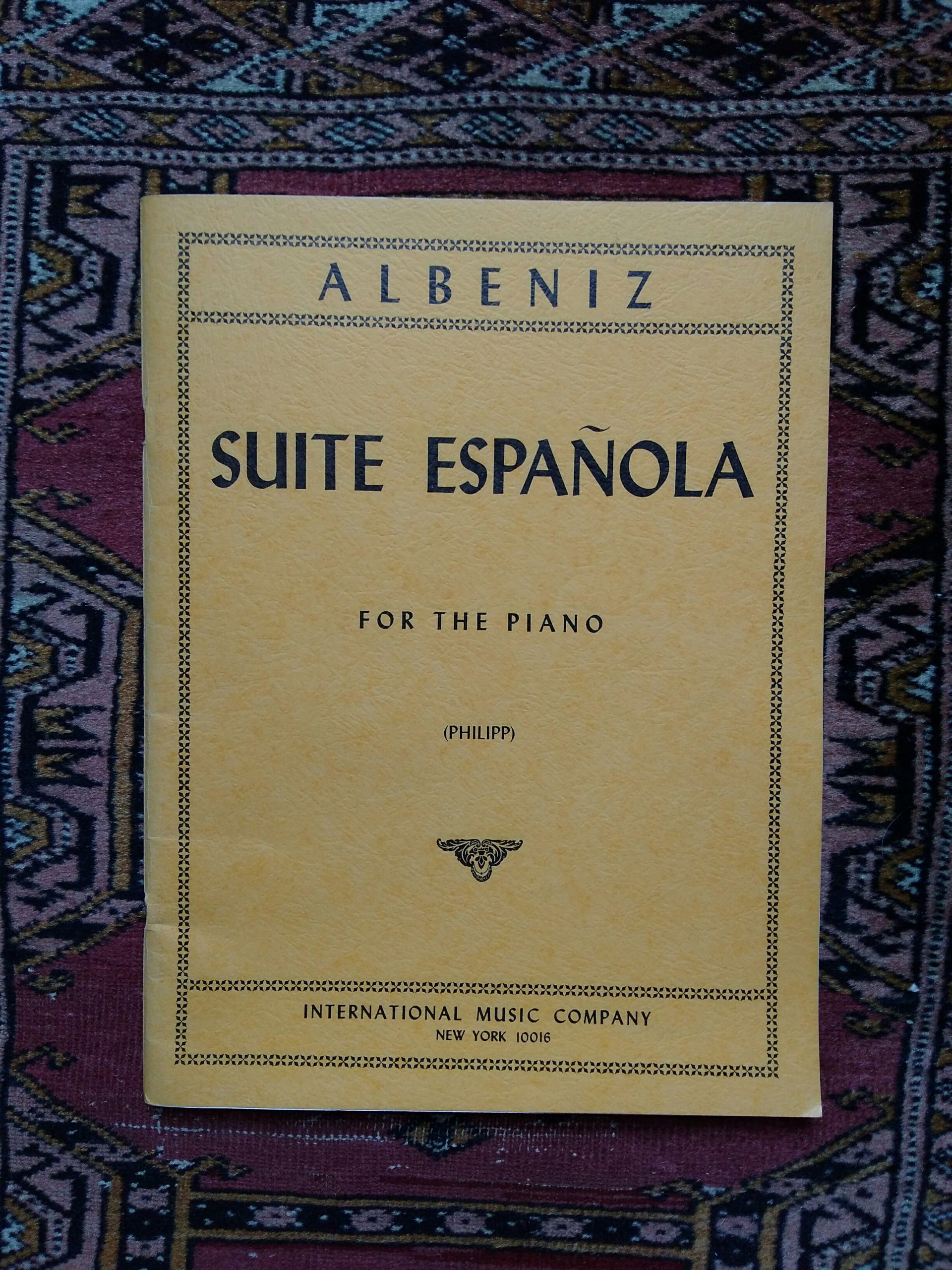 I asked my husband if he knew Albeniz’s Suite Española. ‘Some of it’, he said. Well, exactly.
I asked my husband if he knew Albeniz’s Suite Española. ‘Some of it’, he said. Well, exactly.
Some of the pieces in this Suite are popular – in versions for guitar or orchestra as well as the piano originals – but some are much less well known, as I realised when I sat down with the whole book of them.
Albeniz gathered up four pieces – ‘Granada’, ‘Catalunya’, ‘Sevilla’ and ‘Cuba’ -as a tribute to the Queen of Spain in 1887. They depicted different parts of Spain through its regional dances.
‘Cuba?’ I hear you ask. ‘That’s not part of Spain!’ Well, it was in 1887.
In 1912, after Albeniz had died, an editor added four more of Albeniz’s piano pieces, ‘Cádiz’, ‘Asturias’, ‘Aragón’ and ‘Castilla’, and published all eight as Suite Española. Some of that larger set have become very well-known: ‘Granada’, ‘Sevilla’, ‘Cadiz’, and ‘Asturias’, partly because they’ve become staples of the guitar repertoire. ‘Asturias’ is interesting because it predates Debussy’s ‘Jardins sous la Pluie’, with which it shares some delicate pitter-patter effects. I wonder if Debussy had heard ‘Asturias’?
I have quite a lot of Spanish piano music on my shelves and from time to time I play through a volume of it for fun. A lot of it dates from the late-19th/early 20th century when Spanish composers were taming the rough and raw manners of peasant, gypsy and flamenco dance music to bring it into the salon. Today it’s not easy to see quite why they tidied it up as much as they did, because despite the enormous charm of this music one can feel that it is holding something back. A little of the ‘snap’ and ‘crackle’ of the original dances has gone.
I’ve got used to the Germanic ‘developmental’ style of showing that time has passed by varying the musical material when it reappears. When I play Spanish piano music, I feel impatient with its composers for not doing that. They often just repeat entire sections unchanged. It feels a little bit un-ambitious, to be honest.
But when I’m in the mood to enter its world I can feel that behind this repetition there is another way of thinking about things. This music is not fixated on ‘development’. It draws from another tradition, an older one probably, of music which goes round and round, mesmerising the listener and perhaps the players too with reiteration. One can feel the influence of a more exotic ‘linear’ music, with endless extension of lines which draw the listener gently onward.




Susan, although I know precious little about Albeniz and am grateful for your introduction and analysis, I can’t resist telling you how much I always enjoy your writing. You are as great a writer as you are a pianist! When I read such a perfectly expressed observation as ‘music which goes round and round, mesmerising the listener and perhaps the players too with reiteration’, I think ‘Wow! I wish I could have written that.’
I love ‘Asturias’ and make sure my pupils get to know it too! It’s almost the first piece of music I introduce to my beginner string players – they pluck an open A with the first beat of the bar (or copy a rhythm on that beat). A few years ago, when I went to Madrid to do some workshops, the Spanish teachers were all amazed to find it was the first ‘piece’ in my book. They asked “Why?” and were astonished when I said, “Because it’s wonderful and we all love it!” (They had been worried that when I said I loved Spanish music I meant ‘Spanish’ music written by non-Spanish composers!)
Ivan, what an encouraging comment, thank you! Very cheering!
I appreciate your comment about the Germanic developmental style. I have become so entranced by this style, I find I cannot easily listen to Theme and Variations pieces, as they usually give so little developmental nourishment.